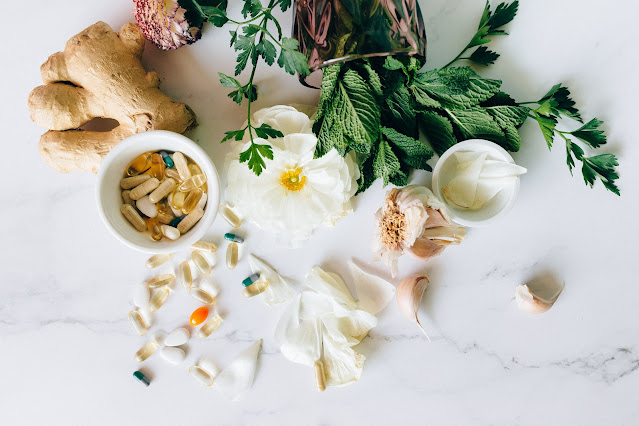The use of Ayurveda herbs for resistance against stress and depression.
Recently it was shown that long-lasted stress may cause to depressive behaviors and reduction of motivation of a fruit fly. Unfortunately, some studies revealed that Ashwagandha and Ginkgo Balboa, for example, were less efficient in improving the resistance of D. Melanogaster to long-term stress. Important is that chlorogenic acid found in Centella asiatica and other herbs have been identified as the key anti-stress agent.
The present research demonstrates how ethnobotanical products may be applied for alleviating stress-related disorders and offers new biological explanations on how people overcome stress.
Important Findings:
1. The exposure of prolonged stress led to depressive like behavior in fruit flies whereas Ayurvedic plants improved coping capabilities in them.
2. This investigation indicated that the stress inhibitor in Centella asiatica was active towards fly's calcineurin proteophosphatase.
3. However, this work helps understand biology of stress and naturally occurring antidotes, connecting the traditional Ayurveda and contemporary neurology.
Rewritten:
Johannes Gutenberg University Mainz
Stress may cause to appear as depression-like states which are marked by low
interest or loss of will - to drive in fact the fruit fly Drosophila
melanogaster. As a result, the behavior of the insect became characterized
by decreased courtship, diminishing food intake of sweets, and unwillingness to
traverse a gap in the experimental area.
Nevertheless, the traditional medicinal plants may help ease certain symptoms'
associated to such cancer, according to a study by the scientists of JGU in
cooperation with the BENFRA Botanical Dietary Supplements Research Center in
Portland, Oregon.
The team of researchers from JGU led by Prof. Roland Straus
has established that applying two popular plants frequently used in Ayurveda
pharmacy during the early stages, a fly may better overcome chronic
stress. Eventually, even under the high-stress condition, the depressed
behavior of the flies was reduced significantly.
Their investigations with respect to the features pertaining to those
botanicals are published in Nutrients. This research shows that
plant-based compounds, for instance, can help organisms with stress management
(Stress 2008).
Strauss observed that depression-like behavior is induced by chronic stress in
fruit flies. The BENFRA Botanical Dietary Supplements Research Center is
based in the United States where it studies some botanicals. These improve
neurological and functional resilience among old people. In particular,
the Mainz based researches study the impacts of traditional Asian medical
extractions and nutritional supplements sold in the marketplace.
There are a few plants with elevated amounts of active constituents which
exhibit highly powerful biological activities. These “adaptogens” plants
help the body to adapt to greater physical and psychological strain.
Helen Holvoet, a Ph.D. candidate in Professor Strauss’s group and the lead author
of two papers mentioned that medical plants have got an advantage over
traditional drugs because they contain active botanical compounds addressing
diverse points of stress pathway. This combined result results in reduced
toxicity, relative to the single substances administration. As an
adjunctive therapy, dietary supplements may be useful as they could be taken
together with pharmacotherapeutic agents.
The cross-cultural collaboration was undertaken by Strauss' team that used the
two Ayurvedic herbs - W. somnifera and C. asiatica.
Therefore, the researchers demonstrated that it is feasible and preventive to
provide protective plants to chronic stress-stressed flies.
Recognition of chlorogenic acid as a
relevant component for the treatment of stress disorder.
In particular, Dr. Burkhard Poeck reported upon having participated in the
study: “We discovered, in the case of Withania Somnifera, that the way the root
is prepared affects the outcome. The results are better when working with
an aqueous extract rather than one
this surprising discovery underscores the need for examining production
procedures in regard to dietary supplements.
In addition, their team in Mainz and with the partners in Portland made a yet
impressive result with Centella asiatica. Their studies indicated
chlorogenic acid to be a protective, anti-stress substance.
Coffee beans harbor high amounts of chlorogenic acid and other
botanicals. Traditional medicinal herbs, such as valerian (Valeriana
officinalis) and St. John's wort (Hypericum perforatum), both renowned for
eliminating anxiety and reducing stress levels, also contain this substance.
These studies also give hints regarding the basic resilience research.
According to Professor Roland Strauss, one of the research findings is that “we
have a highly important target protein for chlorogenic acid in Drosophila - the
protein phosphatase calcineurin.”
Calcineurin is present in many of human's body organs having very high levels
in the nervous system. This system interacts with many proteins in diverse
signaling pathways within their cells.


